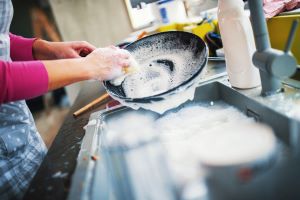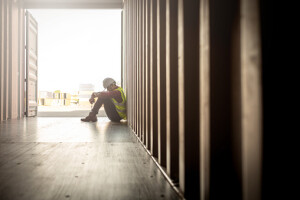
Norfolk Anti-Slavery Network
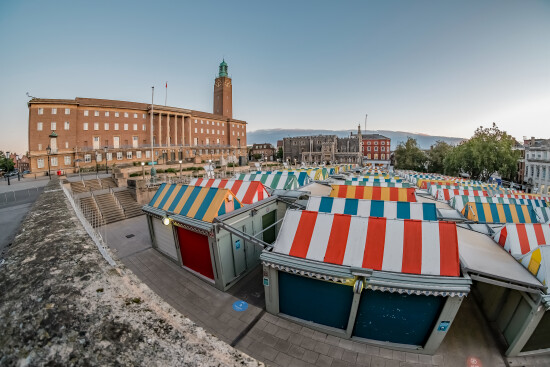 |
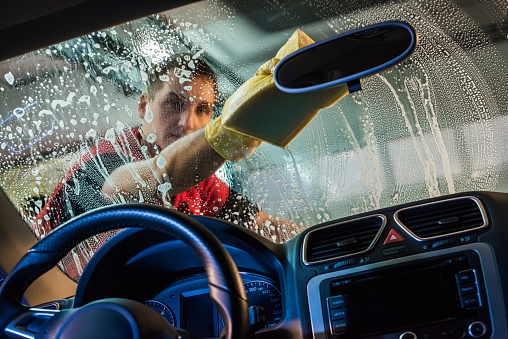 |
 |
| 211 incidents of Modern Slavery identified in Norfolk between April 2024 and March 2025* | Most common form of Modern Slavery found in Norfolk is labour exploitation - 84% of victims identified were male* | 55% of victims in forced criminality in Norfolk were young people, with the most common nationality being British* |
*All MSHT figures sourced from Norfolk Constabulary
The Norfolk Anti-Slavery Network (NASN) is a multi-agency partnership that brings together statutory and non-statutory partners from across the county to tackle modern slavery and human trafficking (MSHT).
The vision of the Norfolk Anti-Slavery Network is to enhance the response to modern slavery and human trafficking in Norfolk. This will be achieved by responding to and supporting victims and creating a zero-tolerance environment for the conditions in which modern slavery and human trafficking thrive.
Norfolk Anti-Slavery Network Strategy 2025 -2028
Strategic Objectives
- Increase identification of victims through raising awareness of modern slavery
- Deliver protection and empowerment to people at risk
- Support, equip and enable our workforces to respond as a whole-system approach to MSHT
- Focus on prevention and supportive interventions
Governance is provided to the network by the Norfolk Community Safety Partnership.
Membership is open to all agencies in the statutory, non-statutory, public, private, community and voluntary sector who have a responsibility and/or have made a commitment to support people who have experienced exploitation or to tackle MSHT in Norfolk.
Contact us to find out more about the Norfolk Anti-Slavery Network
Please note, the Norfolk Anti-Slavery Network does not provide direct support to survivors of human trafficking. If you suspect human trafficking or modern slavery, contact the Modern Slavery Helpline on 08000 121 700.
In an emergency call 999.
Modern Slavery and Human Trafficking are crimes in which people are exploited for other people’s personal gain and take place all over the world, including Norfolk.
Modern Slavery
Modern Slavery is a term used in the UK and elsewhere to describe forms of exploitation occurring in the present day, as opposed to historical forms of slavery. In the UK, human trafficking is considered a form of modern slavery.
The Home Office has described modern slavery as ‘a serious and brutal crime in which people are treated as commodities and exploited for criminal gain. The true extent of modern slavery in the UK, and indeed globally, is unknown.’
Human Trafficking
The UN defined human trafficking in the Palermo Protocol as the ‘recruitment, transportation, transfer, harbouring or receipt of persons by means of threat, or use of force, coercion or deception…to achieve the consent of a person having control over another person, for the purpose of exploitation.’ According to this definition, trafficking includes sexual exploitation, forced and bonded labour, domestic servitude, any form of slavery and removal of organs.
The act, the means and the purpose must be present for an adult to be considered trafficked. However, for children, the ‘means’ component is not required as they are not able to give consent.
The Act
The act describes the processes involved in trafficking. Trafficking is: recruitment; or transportation; or transfer; or harbouring; or receipt.
The Means
The means describes how trafficking is done. Trafficking takes place by means of: force; or fraud; or coercion; or deception; or abuse of power; or abuse of position of vulnerability; or giving or receiving of payment or benefit.
The Purpose
The purpose is the motive for why trafficking occurs. Trafficking takes place by a variety of means for the purpose of: labour exploitation; or slavery practices; or servitude; or sexual exploitation; or removal of organs; or other forms not listed here.
Sexual exploitation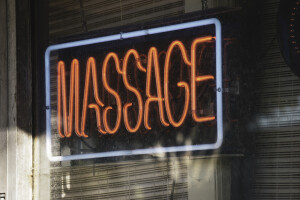 |
Domestic servitude
|
Labour exploitation |
|
|
|
Organ harvesting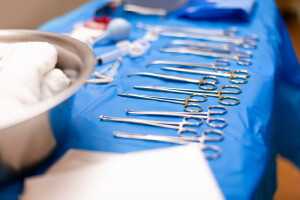 |
Forced begging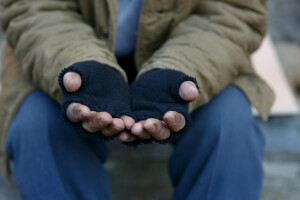 |
Other forms of trafficking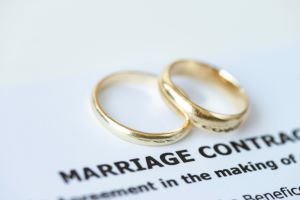 |
|
|
|
SPOT THE SIGNS
Knowing how to spot the signs and report Modern Slavery and Human Trafficking is essential to tackling exploitation in Norfolk.
Someone in slavery might:
- Appear to be under the control of someone else
- Reluctant to interact with others, such as lack of eye contact
- Appear frightened or withdrawn
- Show signs of physical or psychological abuse
- Have someone with them at all times/not allowed to speak
- Work excessively long hours
- Working with predominantly cash transactions
- Have frequent/many different visitors
- Fear of authorities
- No travel or identity documents that would allow them to travel
- Limited opportunities to move freely
- Few personal possessions
- Wear the same clothes day-in day-out
REPORT IT
If you have concerns that someone is being exploited, or suspect modern slavery/human trafficking:
Call the Modern Slavery Helpline on 08000 121 700 (national 24-hour helpline) or report online: www.modernslaveryhelpline.org
This specialist helpline is confidential and independent, with access to translation services for over 200 languages. They provide victims, the public, statutory agencies and businesses access to information and support.
In an emergency, call 999.
HUMAN TRAFFICKING FOUNDATION
> Sign up to receive this regular newsletter from the HTF
TIME TO STOP SLAVERY
Support the Coalition to Stop Slavery campaign by:
- Finding out more about the campaign and learning to spot the signs
- Watching and sharing this film
- Signing the petition
- Using the hashtag #TimeToStopSlavery
SAFE CAR WASH SCHEME
Many hand car washes are legitimate businesses, but some are not. People are being forced to work long hours, for little or no pay, and under threat of violence in hand car washes. By using the Safe Car Wash App, you can identify cases of exploitation and help end modern slavery at hand car washes.
> Home office training for first responders
This programme provides guidance on how to spot the signs of modern slavery, and what to do when you come across a potential victim of modern slavery. This programme aims to give you confidence to follow procedures swiftly and with compassion.
> e-learning Child Victims of Modern Slavery
Responding to child victims of modern slavery presents unique challenges for practitioners working on the frontline. This child-specific programme seeks to build on what you already know as a First Responder and/or safeguarding partner. The programme covers child-specific indicators of modern slavery, while also taking a closer look at forms of exploitation that are particularly prevalent. The programme guides the learner through the safeguarding and NRM referral processes, exploring best practice and the specific knowledge required to respond to child cases of modern slavery.
Introduction to exploitation for frontline workers e-learning package
This e-learning course is for anyone who has interactions with children and/or adults covers the basic awareness and understanding of the various forms of exploitation, covering both adults and children including: Grooming, Forms of exploitation, County lines, Modern day slavery, Vulnerabilities.
The Learning outcomes include: Raised awareness of the different forms of exploitation, Recognise the potential signs of exploitation, Practical advice of how to respond when identifying potential exploitation.
> Modern Slavery in the Care Sector Training
NASN Modern Slavery Victim Support booklet
- What is Modern Slavery | The Salvation Army
- Unseen: working towards a world without slavery
- STOP THE TRAFFIK | People shouldn't be bought and sold
- Human Trafficking Foundation
Resources for businesses
- Construction and the Modern Slavery Act: tackling exploitation in the UK - a report from the Chartered Institute of Building on modern slavery within the building industry.
- GLAA Modern Slavery – Do the Right Thing - video aimed at employers designed for raising awareness and helping your staff identify the signs of labour exploitation.
- Labour Exploitation: spot the signs - information on modern slavery, trafficking and forced labour including what signs to look for. It also gives guidance on practical ‘do’s and don’ts’ when working with potential victims.
- Home Office Resources Page - information to help you identify if your organisation needs to publish a modern slavery statement and best practice guidance on producing a statement.
- Slavery and human trafficking in supply chains: guidance for businesses - UK government guidance for organisations on how to ensure that slavery and human trafficking is not taking place in their business or supply chains.
Resources for professionals
- NRM Process - Home Office presentation
- The slavery and trafficking survivor care standards - aims to provide a blueprint for UK-wide service providers offering high quality care to adult survivors of modern slavery.
- The trauma informed code of conduct - a guide for professionals working with survivors of trafficking and slavery.
- What is the National Referral Mechanism? NRM updated Oct 24
- What is the Duty to Notify?
- Supporting modern slavery victims: guidance and good practice for council homelessness services - supports heads of service and frontline officers in understanding their role towards improving provision for survivors of Modern Slavery.
- Independent Anti-Slavery Commissioner Annual Report 2024-25
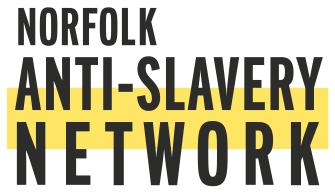
Latest & Featured News
